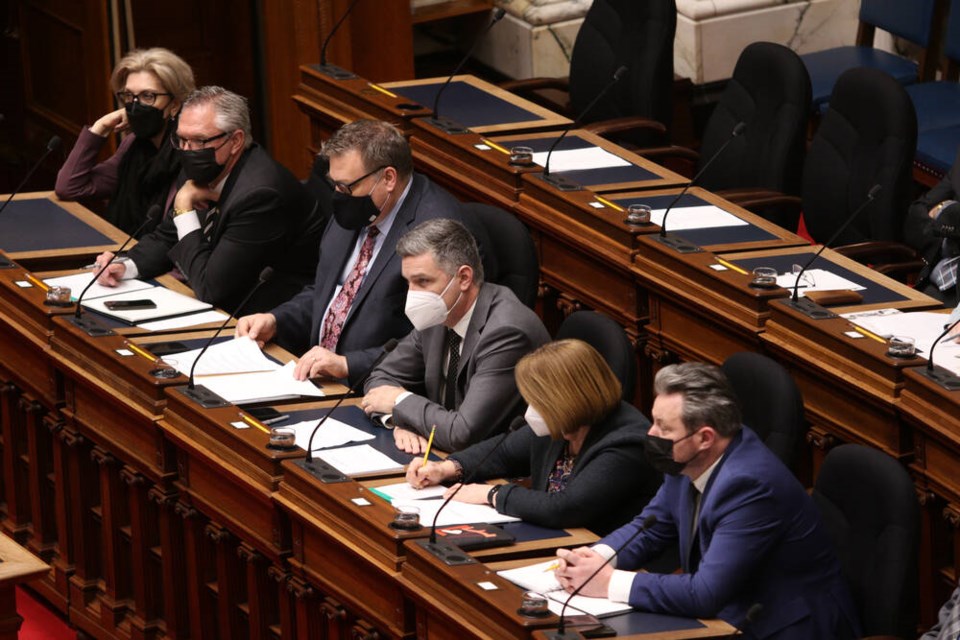Finance Minister Selina Robinson promised reconciliation would be woven throughout all government decision making.
She also announced new health and child-care initiatives for First Nations and established the Declaration Act Secretariat, designed to ensure provincial legislation is aligned with the United Nations Declaration on the Rights of Indigenous Peoples.
But for some Indigenous leaders, the government’s promises fell short.
“I am disappointed in the commitments to reconciliation in this budget — I feel like it’s a status quo budget,” said Leslie Varley, executive director of the B.C. Association of Friendship Centres.
Varley acknowledged that reconciliation will take a long time and require buy-in from all quarters, especially within the social services sector, but she said the budget was a missed opportunity to make a real difference.
“In order for us as Indigenous people to receive safe, adequate, culturally appropriate services, we need to be able to go to any sector agency and ask for those services, and right now we know we’re not going to get safe, adequate services,” she said.
For example, she said, an Indigenous woman who has been a victim of sexual assault is unlikely to go to a mainstream organization and ask for support. “I’m not going to report my sexual assault to the police or to the RCMP because I don’t feel safe. Those institutions and organizations have never been able to serve us appropriately,” she said. “So reconciliation needs to be bigger than just our community. We all need to work on this. And I was frankly hoping for a much larger commitment to this because we have so much work to do over the next 10 to 20 years.”
Varley said one win for Indigenous people in Tuesday’s budget would have been a big investment in the Ministry of Social Development and Poverty Reduction to put reconciliation at the forefront, with Indigenous people working on the boards or in the management of those services, rather than the frontline positions they tend to get.
“So we could start making policies and practices that were culturally safe and appropriate,” she said. “So we’ve got a lot of work to do and it’s going to take a massive investment and not just a financial investment, but a time investment.”
Varley said a lot of the reconciliation initiatives are geared toward First Nations, but 85 per cent of Indigenous people in B.C. live off reserve. “I would like to see a stronger commitment to reconciliation with the off-reserve Indigenous population, to be invited to the table, to sit at the table with First Nations and for us to collaboratively work on this important and dynamic piece of work together.”
The Métis Nation issued a statement noting Métis people were not mentioned in the budget or supporting documents.
“Budget 2022 reflects the government of British Columbia’s commitment to supporting Indigenous peoples broadly,” said Lissa Dawn Smith, president of the Métis Nation of B.C. “But MNBC, which represents one-third of the province’s Indigenous population, has fallen through the cracks — again.”
Smith noted the $12-million commitment to establish the Secretariat falls well short of what has been requested, and that the money is designed to improve the public service’s ability to interact with Indigenous governments, but none of the funds will be used to increase the capacity of Indigenous governments to interact with the province.
Angela Polifroni of the Alliance of the B.C. Modern Treaty Nations said while she saw plenty of discussion of Indigenous issues and acknowledging Indigenous jurisdiction throughout the budget, there wasn’t much in the way of new money.
While the $12 million for the Secretariat is new money, it’s for a program that was announced years ago.
“So what I’m going to be looking for is government making good on their talk and moving things into reconciliation as they say,” she said.
As for what the Alliance, which represents Nations that already have treaties, would like to see next, Polifroni said it’s simple. “From the perspective of a modern treaty signatory, what we are looking for is the full implementation of our treaty.”



